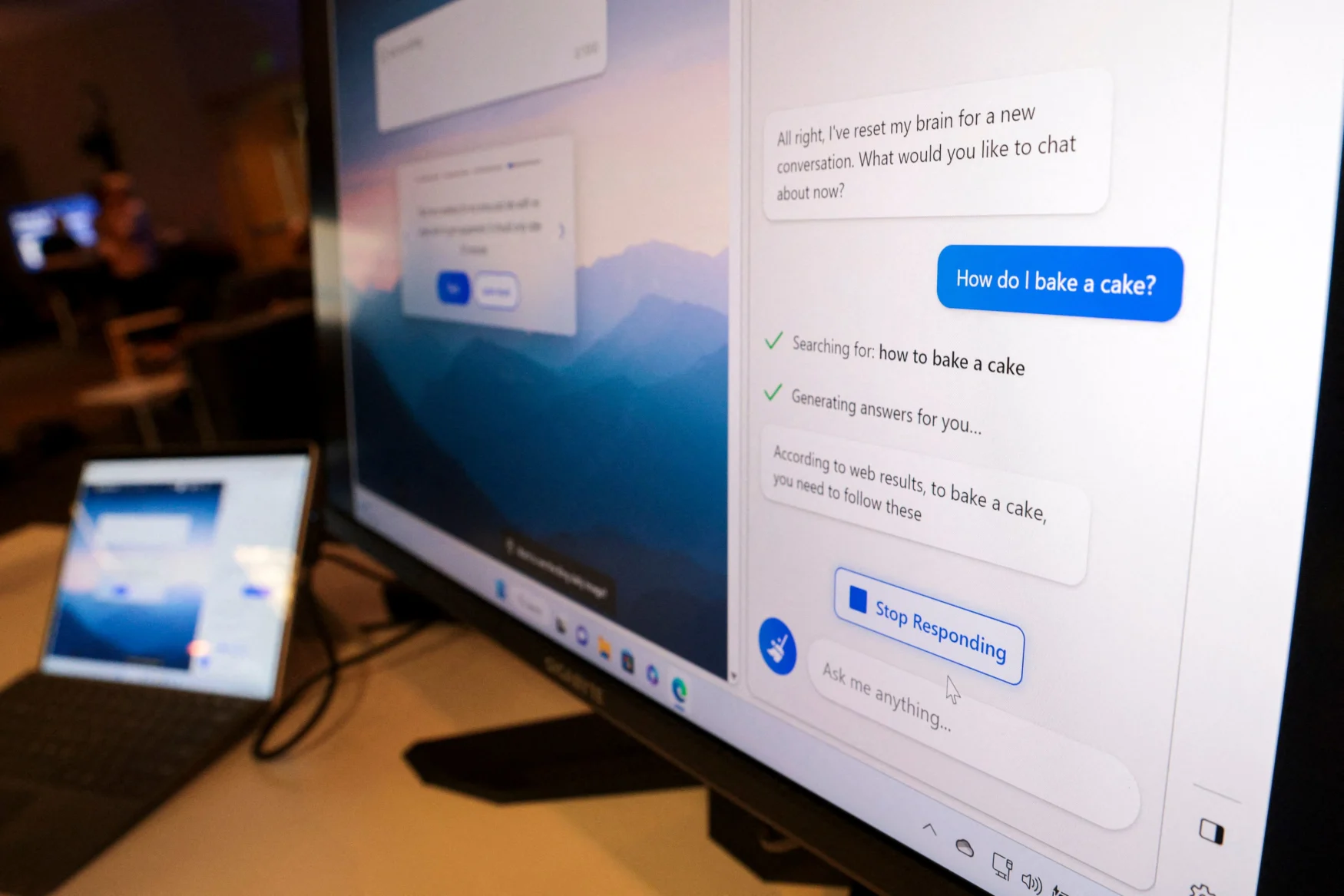
Great news, everybody, we’re rotating to chatbots! Little did OpenAI understand when it launched ChatGPT last November that the sophisticated LLM (big language design) created to simulate human writing uncannily would end up being the fastest-growing app to date, with more than 100 million users registering over the previous three months. Its success —– assisted by a $10 billion, multi-year financial investment from Microsoft —– mostly captured the business s competitors flat-footed, stimulating a mad and furious reaction from Google, Baidu, and Alibaba. As these improved search engines come online in the coming days, the methods and whys of how we browse will progress along with them.
I’m pretty delighted about the innovation. You understand, we’ve been constructing NLP systems for a while and looking every year at incremental development,” Dr. Sameer SinghAssociate Professor of Computer Science at the University of California, Irvine (UCI), informed Engadget. “For the general public, it looks like all of a sudden, out of the blue, that’s where we are. I’ve seen things improving for many years, and it’s great for all these things to be offered and for individuals to utilize them.”
Regarding the current public success of big language designs, “I believe it’s partially that innovation has gotten to a location where it’s not humiliating to put the output of these designs in front of individuals —– and it does look excellent the majority of the time,” Singh continued. I believe that that s sufficient.

He continued that it has less to do with innovation but more to do with the general public understanding. If GPT had not been launched openly, Once something like that is out there and resonating with numerous individuals, the use is off the charts.”
Browse companies have huge, enormous concepts for how the synthetic intelligence-enhanced web spiders and online search engines may work, and damned if they aren’t going to break things and move quickly to arrive. Microsoft imagines its Bing AI to work as the user’s copilot in their web surfing, following them from page to page, answering concerns, and even composing social networks posts on their behalf.
This is an essential modification from the procedure we utilize today. Depending upon the intricacy of the concern, users might need to go to several sites, then sort through the gathered details and sew it together into a cohesive concept before examining it.
That’s more work than having a design that ideally has checked out these pages and can manufacture this into something that does not presently exist on the web,” Brendan Dolan-GavittAssistant Professor in the Computer Science and Engineering Department at NYU Tandon, informed Engadget. “The details are still out there, and it’s still proven and ideally right. It’s not all in location.”
For its part, Google s vision of the AI-powered future has users spending time on its search page instead of clicking through to location websites. Info appropriate to the user’s inquiry would be gathered from the web, sewn together by the language design, then thrown up as a response with a referral to the coming from the site shown as footnotes.
This all noises terrific and was all going excellent, ideal approximately the first chance for something to fail when it did. In its inaugural Twitter advertisement —less than 24 hr after debuting —– Bard, Google s response to ChatGPT, with confidence, said, “JWST took the first photos of a world beyond our planetary system.” You will be stunned to discover that the James Webb Space Telescope did not, in reality, find the very first exoplanet in history. The ESO s Very Large Telescope has held that honor since 2004. Bard simply made it up and hallucinated it out of the digital ether.
Bard is a speculative conversational AI service, powered by LaMDA. Constructed utilizing our big language designs and making use of info from the web, it’ s a launchpad for interest and can assist streamline intricate subjects → https://t.co/fSp531xKy3 pic.twitter.com/JecHXVmt8l
— Google (@Google) February 6, 2023
This isn’t the very first time that we ve been lied to by makers. Browse has been a bit of a crapshoot since the early days of Lycos and Altavista. “When the search was launched, we believed it was ‘sufficient though it wasn’t best,” Singh remembered. “It would provide all sorts of outcomes. With time, those have enhanced a lot. We had fun with it, and we recognized when we need to trust it and when we shouldn’t– when we must go to the 2nd page of outcomes, and when we should not.”
The subsequent generation of voice AI assistants developed through the same base problems their text-based predecessors did. “When Siri and Google Assistant and all of these came out and Alexa,” Singh stated, they were not the assistants they were being offered to us.
The efficiency of these days s LLMs, like Bard and ChatGPT, are most likely to enhance along comparable courses through their public usage, along with additional expertise into particular technical and knowledge-based functions such as medication, service analysis, and law. “I believe there are reasons it ends up being better once you begin specializing it. I do not believe Google and Microsoft will specialize excessively —– their market is as basic as possible,” Singh kept in mind.
In many methods, what Google and Bing are using by interposing their services in front of the more extensive web —– much as AOL made with the America Online service in the ’90s– is a rational conclusion to the obstacles dealing with today s web users.

Nobody’s searching for an entirely objective. We are looking for some info, ultimately to act upon that info,” Singh argues. If we consider that as the function of search, and not simply browse in the true sense of actually looking for something, you can think of something that acts upon the top of search engine result can be beneficial.”
Singh identifies this centralization of power as “a legitimate issue. if you have these chat abilities, you are much less likely to go to the sites where this info lives,” he stated.
It s bad enough that chatbots have a routine of making broad intellectual leaps in their summarizations. However, the practice might likewise “incentivize users not go to the site, not check out the entire source, to simply get the variation that the chat user interface offers you and sort of start counting on it increasingly more,” Singh cautioned.
In this, Singh and Dolan-Gavitt concur. “If you’re cannibalizing from the gos to that a website would have gotten and are no longer directing individuals there, however utilizing the very same details, there’s an argument that these websites will not have many rewards to keep publishing brand-new material,” Dolan-Gavitt informed Engadget. “On the other hand, the requirement for clicks likewise is among the factors we get great deals of spam and is among the reasons search has ended up being less helpful recently. I believe [the shortcomings of search are] a huge part of why individuals react more favorably to these chatbot items.”
That need, integrated with a nascent market, is leading to a scramble amongst the market’s significant gamers to get their items out the other day, prepared or not, underwhelming or not. That rush for market share is highly harmful to customers. Microsoft s previous venture into AI chatbots, 2014’s Taye, ended severely (to put it without the white hoods and goose-stepping). Today, Redditors are currently jailbreaking OpenAI to produce racist material. These are 2 of the more harmless difficulties we will deal with as LLMs broaden in usage; however, even, they have shown challenging to mark out in part because they need coordination among a market of thick rivals.
The examples that I tend to stress over are, on the software application side, whether this puts destructive abilities into more hands, makes it simpler for individuals to compose malware and infections,” Dolan-Gavitt “stated. However, this is not as severe as things like false information, and I believe it’ll make it much simpler for individuals to make spam.”
A great deal of the belief around security has been asserted on this concept that there would be simply a couple of main businesses that, if you get them all to concur, we might have some security requirements.” Dolan-Gavitt continued. “I believe the more competitors there are, the more you get this open environment where you can download an unlimited design, set it up on your server, and have it create whatever you desire. The methods that count on this more central design will begin to break down.”






